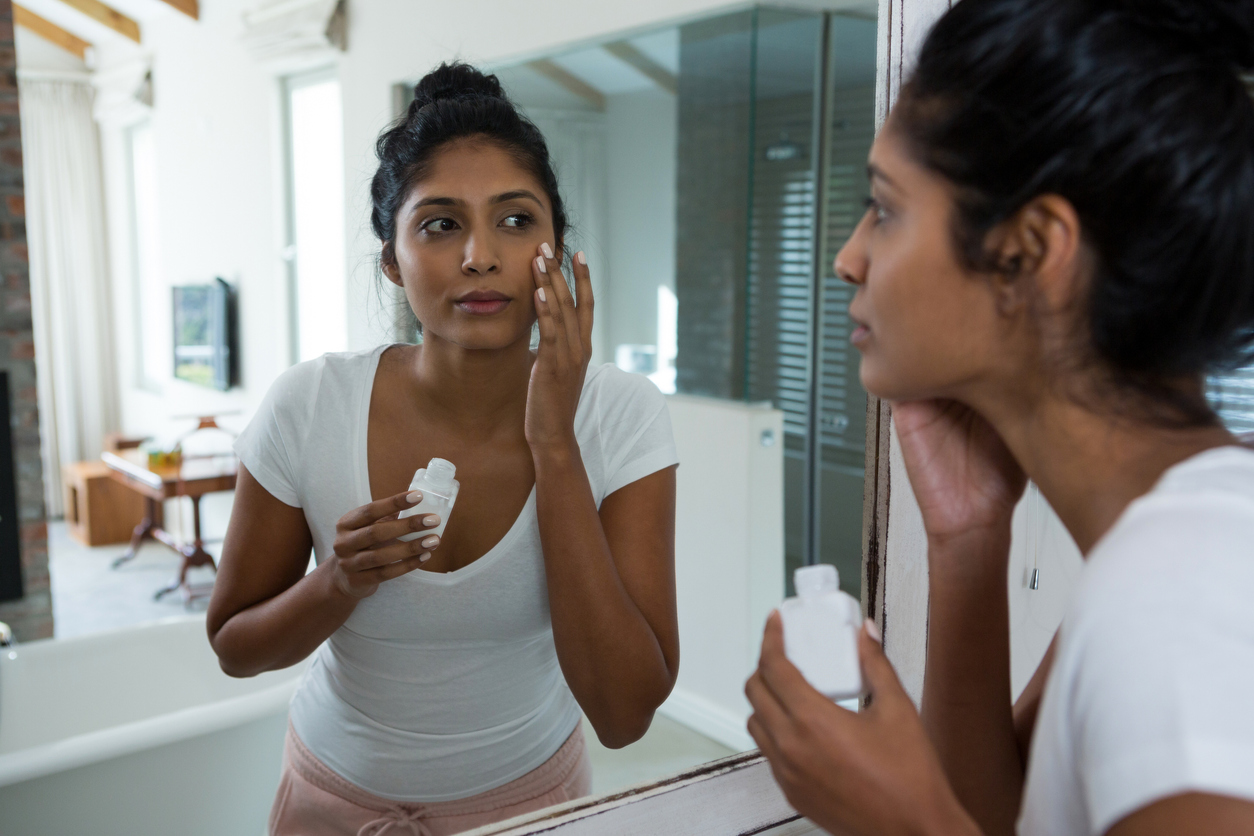If you’re following a skin-care routine for acne, you’ve probably heard of exfoliation. Exfoliation can be a beneficial part of any skincare routine – when done correctly. Especially with acne-prone skin it is important to use the right products and the right technique to make the most out of it.
How exfoliation works on your skin
Exfoliation is the process of removing dead skin cells from the outer layer of your skin. Although your skin naturally sheds dead skin cells, this process starts to slow down as you age.
Exfoliation helps improve the appearance of your skin by preventing your pores from clogging and preventing whiteheads and blackheads. In fact, regular exfoliation can also help acne products penetrate your skin better.
However, if you choose to exfoliate, it’s important to do it safely so that it does not damage your skin or lead to increased redness or acne breakouts.
Choosing the right exfoliant
Every type of exfoliation may not work for every skin type, it’s important to consider your skin type before choosing an exfoliation method.
To select the proper exfoliating product for you, assess your skin. If you have sensitive skin, a physical scrub or chemical exfoliation product with a high concentration of active ingredients might be too harsh for you. In this case, perhaps you can choose a cleanser with exfoliating ingredients or a gentle exfoliating serum. If you have oily skin, your skin can likely handle the products better.
Always patch test before starting any new skin-care product
When in doubt, consult a dermatologist who can give you personalised recommendations for the type of exfoliation that will work for you.
How to safely exfoliate your skin?
There are two main methods for exfoliation — physical and chemical — and the method you choose should be guided by your skin type. Physical exfoliation uses a tool, such as a brush or sponge, or a scrub to physically remove dead skin cells. Chemical exfoliation uses chemicals, such as alpha and beta hydroxy acids, to gently dissolve dead skin cells.
1. Be mindful of the skin care products you already use
Some medications and even over-the-counter products may cause your skin to be more sensitive or peel, such as prescription retinoid creams or products containing benzoyl peroxide. Exfoliating while using these products may worsen dry skin or even cause acne breakouts.
2. Select an exfoliation method that suits your skin type
Those with dry, sensitive or acne-prone skin may prefer a mild chemical exfoliator, as mechanical exfoliation may be too irritating for this skin type. Those with oily, thicker skin may use stronger chemical treatments or mechanical exfoliation. For some people, especially those with darker skin tones, more aggressive forms of exfoliation may result in dark spots on the skin.
3. Be gentle to your skin
If you use a scrub or chemical exfoliator, apply the product gently using small, circular motions. Do this for about 30 seconds, and then rinse off with lukewarm — not hot — water. Never exfoliate if you have open cuts or wounds or if your skin is sunburned. Even with a chemical exfoliator, follow the instructions and don’t use too much product.
4. Follow with a moisturiser
Exfoliating can be drying to the skin. Apply a non-comedogenic moisturiser after exfoliating to keep your skin healthy and hydrated.
5. Find the right schedule for you
How often you exfoliate depends on your skin type and exfoliation method. Generally, the more aggressive the exfoliation, the less often it needs to be done. Unless recommended by your doctor, avoid using several exfoliating products at the same time. Doing so may cause redness, excessive dryness, peeling, and considerable irritation. Remember, less is more.
If you aren’t sure what skin type you have, or if you have questions about exfoliating, consult a dermatologist before starting any new product.
Disclaimer: Content on Veera is provided for informational purposes only and is not intended as medical advice, or as a substitute for medical advice given by a physician



















